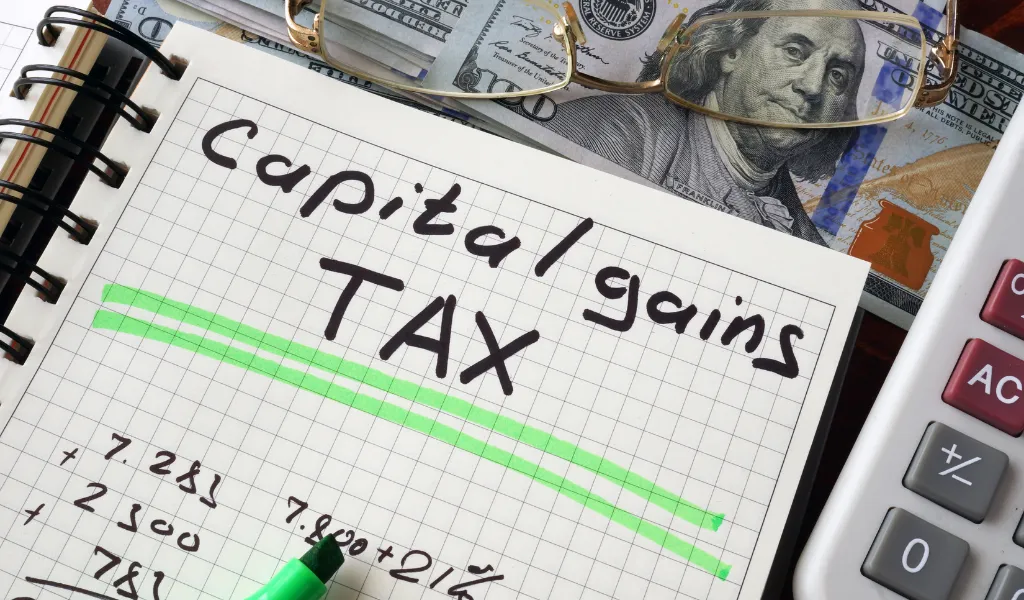If you decide to sell a piece of land or your second home, then you must learn about Capital Gains Tax (CGT) as much as possible. Yes, it is a complex matter. This guide is here to simplify it for you. Before you sell your home, you should know the six ways to reduce Capital Gains Tax (CGT) on property in UK. For the first time in 35 years, Capital Gains Tax (CGT) allowance fell quite a lot in 2023. It is going to further decrease in April 2024. For this reason, it is important to understand CGT when you want to sell a property. It is one of the heaviest profit taxes you will face. If you do not do your research, you will end up paying a huge amount. You do not want that. The good news is that it is not entirely impossible to avoid paying for CGT. First, let’s discuss the meaning of Capital Gains Tax (CGT).
Definition of Capital Gains Tax
You pay Capital Gains Tax (CGT) on the profit you receive when you se ll an asset whose value increased. This also includes the profit you make when you dispose of an asset. Which means to give away or exchange. There are certain assets which are tax free. For example, your primary residence. Whereas, when it comes to rental properties, you may end up paying CGT when you sell it. That is, if its value increased since the time you purchased it. That is why it is important to know the six ways to reduce Capital Gains Tax (CGT) on property in UK.

When is Capital Gains Tax Due?
Now that you understand what Capital Gains Tax (CGT) is, you are going to wonder how to pay it. So, when must you pay Capital Gains Tax (CGT) on your property? Well, you must get ready to pay CGT within a month of making the gain. If you are selling the property, then it is thirty days from the date of completion. Before you can make this payment, you must get a hold of the following details:
- Date on which you bought the property.
- Full address of your property. (This includes postcode).
- Date of exchanging contracts.
- Date of completion. This is the date that you were no longer the owner of the property formally.
- Verification of the price at which you purchased the asset along with its selling price.
It is crucial to not forget the following:
- Proof of any expenses for improving the property. For example, the cost of re-landscaping the garden or renovating the roof.
- Details of any expense that you paid when you disposed of the asset. For example, in the scenario of your property, perhaps it is the agent’s fees.
Hence, you should know the six ways to reduce Capital Gains Tax (CGT) on property in UK.
How Can You Reduce or Avoid Capital Gains Tax (CGT)?
If you made the calculations of your CGT bill on your property, the number may scare you. Then, you will want to find ways to reduce the amount of CGT that you owe. The good news is that there are plenty of ways to reduce and even completely avoid Capital Gains Tax.
Six Ways to Reduce Capital Gains Tax (CGT) on Property in UK
Here are the six ways you can reduce CGT on property:
1. Use Strategies to Downsize Your Portfolio
As a UK resident, you get £6,000 as a tax-free allowance. You receive it before CGT applies. This means you can make the most of it through strategic property sales. To simplify, the sales are perfectly timed to make sure this allowance is in full use of every year. Property owners use this strategy to downsize slowly, instead of disposing of half their portfolio in a day. Consider selling five properties over five years. You will gain the benefit of five times as much tax relief.
2. Your Spouse Can Help You Avoid Capital Gains Tax (CGT)
One ideal way to reduce your CGT bill is to bring your spouse into the loop. Consider this: you (the property owner) are a high-rate taxpayer, but your spouse does not work. Then you can benefit from this. The reason for this is that your annual income is a basis for a large sum of CGT. Therefore, you can sell the property in your spouse’s name. Since they are a base rate taxpayer, you will pay the lower rate CGT.
3. Balance Your Expenditures Against Your Capital Gains Tax
Another way to reduce your CGT bill is by offsetting any losses against gains. That is, if they are in the same tax year. When you purchase an asset such as a property, you hold it for some time and then sell it forward. This is something any product-based business would do. Therefore, you can offset your expenditures against the tax bill like any business. You can carry losses forward indefinitely if they are more than your gains. This means you can offset them against future gains. Remember, you should register them with HMRC to do so. Here is an example to elaborate: You pay £3,000 to a landscaper and roof renovation cost you £5,000. This adds value worth £9,000 to your property. Thus, you will pay tax on the £1,000 added by the improvements only. There are a total of six ways to reduce Capital Gains Tax (CGT) on property in UK.
4. Refinance a Property
Luckily, you can avoid paying CGT altogether if you simply do a speedy refinance. There is a reason for this. You see, whenever you refinance a property, it is done so on its current value. For example, you bought your home for £90,000. Presently, its worth stands at £180,000. Then, this figure of £180,000 will form the basis for your refinance options. You can pull out £135,000 if your new mortgage is 25% Loan-To-Value (LTV). All this and you do not have to pay any Capital Gains Tax (CGT). Tax applies to forms of profit. It does not apply to debt, as in mortgages. Therefore, in this scenario, you have £135,000 for a house that cost you more than £90,000. You can keep renting it out each month.
5. Change Your Main Place of Residence
There is a simple way to avoid paying Capital Gains Tax (CGT). You can move house for two years. Yes, that is simple. How does it work? Well, you don’t pay CGT on the sale of your main residence. It only applies to any property that is an investment. Suppose you want to sell your second home, which is worth more than your present home. Then, simply start calling it your Primary Place of Residence. You will then avoid paying Capital Gains Tax (CGT) as it does not apply to your primary residence.
6. Gift Your Property to Your Child Through a Trust
Another ideal way to avoid paying CGT is to pass the property onto your child through a trust. Of course, there are criteria for it. Your property’s worth must lie below £650,000 and you must make sure to fully pay it off. It can help you avoid Inheritance Tax and Stamp Duty along with CGT. It doesn’t get better than that! Nonetheless, it is not a simple option. It is best to reach out to an expert accountant before going down this road. Additionally, here is an example to help you understand.
For example:
Suppose you buy a property that is worth £200,000. With time, the value increases to £300,000. Now, instead of selling this property, you can give it as a gift to your child through a trust fund. Not only do you avoid CGT, but you also maintain a rental income. Additionally, your child gains business knowledge and avoids Stamp Duty Land Tax completely. In case you do not want to pay CGT, you must agree to a TCGA Section 260. By agreeing to this part of the tax legislation, you can use your lifetime IHT free allowance. Therefore, you will not need to pay Capital Gains Tax (CGT). You can avoid the 40% tax you would otherwise have to pay, which is equal to £80,000 according to the example. In the UK, every individual has £325,000 as their lifetime IHT free allowance. Thus, a couple can use this method to pipe up to £650,000 worth of property into a trust. They can keep this amount for nine years. There is no need to worry if your child is not settled down. It is in a trust and not under the child’s ownership. You will not lose the property even if they get a divorce. Now, you understand the six ways to reduce Capital Gains Tax (CGT) on property in UK.
What Happens if You Do Not Pay Capital Gains Tax (CGT)?
If you do not pay the CGT that you owe within the thirty-day period, there is a penalty. Also, there is interest. The amount of fine depends on how long you have not paid CGT for. In case the default is up to 6 months, then it is £100. Further delay leads to an additional penalty. Which is either £300 or 5% of the due amount, depending on which is greater. If you do not pay for more than a year, then the same penalty applies again. Under the circumstance that you never pay your CGT, do not worry about it affecting your credit score. Local council or even HMRC will not share this information with any credit reference agencies. Therefore, it is important to know the six ways to reduce Capital Gains Tax (CGT) on property in UK.
Conclusion
It is important to understand how and when you can reduce the amount of Capital Gains Tax (CGT) you owe on your property. Otherwise, you may end up paying a hefty bill. Surely, no one wants that. When dealing with taxes and their complications, it is best to reach out for professional advice before deciding.








